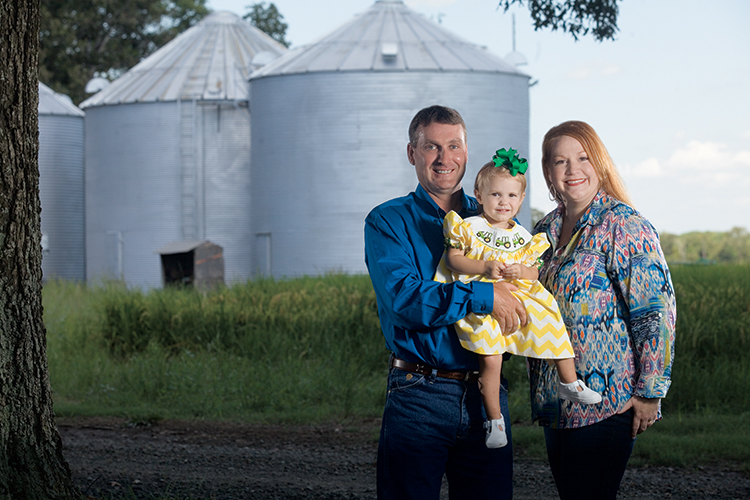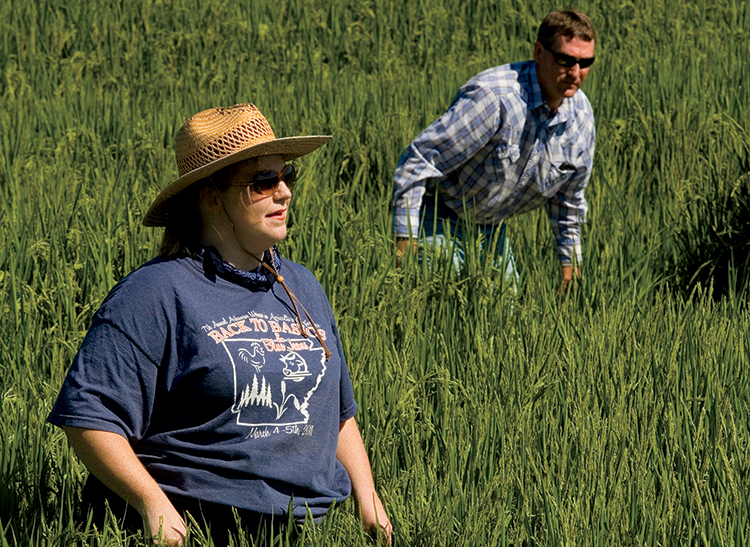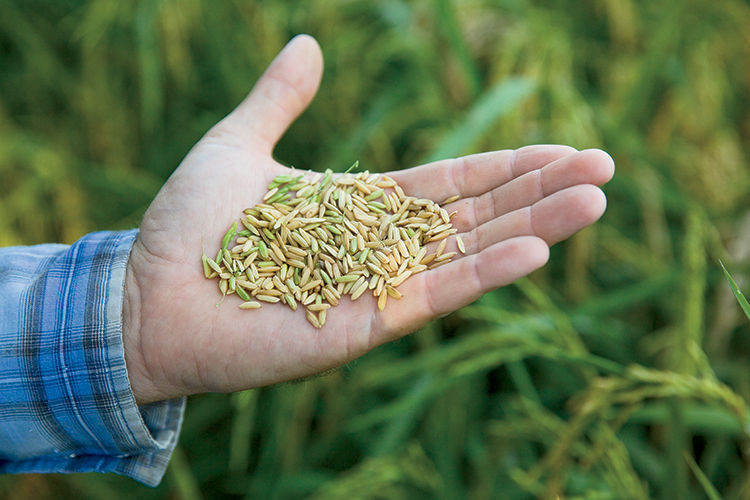Home > Arkansas > Arkansas Farm to Table > Arkansas Women in Agriculture
Arkansas Women in Agriculture
Even though she grew up on a farm, Allison Gurley of Biscoe never intended to become a farmer.
“My parents farmed rice, cotton and soybeans, and I’m an only child, so I always worked like a son,” says Gurley, laughing. “But I later got my master’s degree in speech pathology, and I planned to live in a condo in Little Rock. I did not plan to move back to a farm.”
Then, Gurley married Jarrett – a farmer – and found herself back on the farm. She and Jarrett and their 20-month-old daughter Kemmer raise soybeans, wheat and rice on 700 acres in Monroe County. They live in Jarrett’s grandparents’ farmhouse in Prairie County.
“I’ve heard people say farming gets in your blood, and it does,” Gurley says. “It’s very rewarding to see the process from seed to harvest and to know you’ve done it with your own hands. It’s not an easy lifestyle though, not knowing how much money you are going to make and leaving the house at 5:30 a.m. and not getting home until 10:30 p.m.”
Gurley is one of nearly 20,000 Arkansas women who work in agriculture, a field traditionally dominated by men.
“Agriculture is not just a man’s world anymore, although it was for a long time,” she says. “There are plenty of women who work out in the fields, too. I feel responsible to grow the business end of our farm because my name is on the paperwork along with Jarrett’s, and I’m just as responsible to pay off our crop loan as he is. I lose sleep over things just like he does, and I hope for the biggest crop yield like he does.”
Annie’s Project
In 2007 and again in 2011, Gurley took part in Annie’s Project, an educational program dedicated to strengthening women’s roles in modern farm enterprises. Launched in 2003 by University of Illinois Extension, the program is now offered in more than 25 states and fosters problem solving, record keeping and decision-making skills in farm women.
“I have seen many women who have struggled to maintain their farm operations after losing their spouse,” says Carrie Hirmer, Annie’s Project State Coordinator for Arkansas. “Gaining access to information has also been an issue for women. Annie’s Project teaches the business end of farming and provides resources women can use for years to come.”
Gurley says the program placed resources and knowledge in her hands, which she put into practice on her farm the next day.
“The general public sees tractors in the fields and has a romanticized view of farming, but it’s actually a risky business,” Gurley says. “You need a business plan, good record keeping, marketing, insurance and you have to know your assets, liabilities and net worth.”
Mary Frances Perkins of Carlisle grows rice, soybeans and corn on 2,000 acres with her husband Gary, a third-generation farmer. She completed Annie’s Project with her 16-year-old granddaughter.
“It was fantastic. We learned about marketing, budgeting and how farmers get paid,” Perkins says. “I took my granddaughter because this is her heritage, too. We changed a lot of things on our farm because of Annie’s Project.”
Women in Agriculture
Perkins is a board member and past president of Arkansas Women in Agriculture, a nonprofit organization that provides educational programs and networking for women involved in agriculture. Formed in 2005, Arkansas Women in Agriculture holds an annual conference in March averaging 200 attendees. They provided funding for Annie’s Project workshops in Arkansas from 2007 through 2011.
“Women are the fastest growing sector in agriculture,” Hirmer says. “According to the 2007 Census of Agriculture, there are more than 19,000 female farm operators and more than 6,000 female principal farm operators in Arkansas.
“Women are the backbone of most farm operations and not only nurture their families, but are also an integral part of their farm operations. By educating and empowering women, we not only make a positive impact on women, but also on farm families, which is great for agriculture in our state and nation.”






